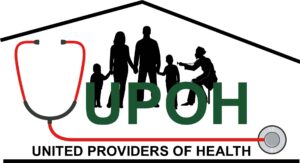
Food Security and Health: Nutrition’s Impact on Patient Outcomes
Food security—having steady access to healthy, affordable food—is a key factor in health. Many people in low-income or rural areas struggle to access nutritious food, which leads to chronic illnesses, worsens mental health, and raises medical costs. By focusing on food security, healthcare providers can move beyond treating illnesses to preventing them.
This blog covers the link between food security and health, how providers can help patients, and efforts by groups like United Providers of Health (UPOH) to improve access.
How Food Security Affects Health
When people lack healthy food, their risk of obesity, diabetes, heart disease, and high blood pressure increases. Missing out on fruits, vegetables, and proteins causes nutritional gaps that make these conditions worse. Food insecurity also adds stress and anxiety, harming mental health. It creates a cycle of poor health and higher medical bills, with patients often seeking emergency care instead of preventive help.
Food Deserts and Their Impact
“Food deserts” are areas where finding nutritious, affordable food is difficult. Rural residents without transportation may travel hours to buy groceries, while families in low-income urban areas often rely on cheap, unhealthy fast food. These limited options lead to unhealthy diets and preventable diseases.
How Healthcare Providers Can Help
Providers can take steps to address food insecurity by:
- Screening for Issues: Ask patients about food access during visits to understand their challenges.
- Partnering with Local Groups: Team up with food banks and nonprofits to provide support.
- Sharing Nutrition Tips: Offer budget-friendly recipes, tips on seasonal produce, and local market information.
- Including Nutrition in Care Plans: Help patients manage conditions with tailored meal advice, like low-sodium diets for heart health.
- Referring to Assistance Programs: Connect patients to programs like SNAP or WIC for ongoing food support.
Community Projects Making a Difference
Groups like United Providers of Health (UPOH) are helping communities get the food they need. In Bethel, NC, UPOH is opening People’s Grocery, a store offering affordable, nutritious food. This project reduces travel for groceries and supports UPOH’s goal of improving community health.
Conclusion
Addressing food security is critical for reducing chronic illnesses and enhancing overall well-being. When healthcare providers integrate food access into patient care, they empower individuals and families to make healthier choices. Collaborative efforts, like People’s Grocery in Bethel, NC, exemplify how community-driven solutions can tackle food insecurity. Together, these initiatives lay the groundwork for stronger, healthier communities and a brighter future for all.
Sources
Access to affordable, nutritious food is limited in “food deserts.” USDA ERS – Access to Affordable, Nutritious Food Is Limited in “Food Deserts.” (n.d.). https://www.ers.usda.gov/amber-waves/2010/march/access-to-affordable-nutritious-food-is-limited-in-food-deserts/
Importance of nutrition on Health in America. Feeding America. (n.d.). https://www.feedingamerica.org/hunger-in-america/impact-of-hunger/hunger-and-nutrition#:~:text=Food%20insecurity%20can%20lead%20to,have%20a%20member%20with%20diabetes.
Jenkins, E. (2024, May 21). United Providers of Health to bring grocery store to bethel. WNCT. https://www.wnct.com/local-news/united-providers-of-health-to-bring-grocery-store-to-bethel/
